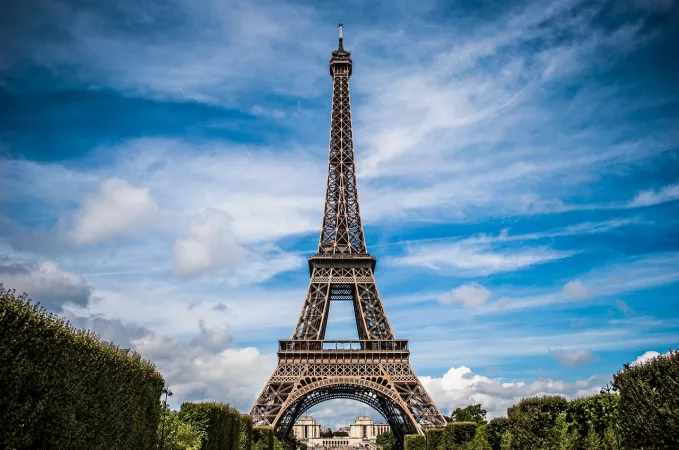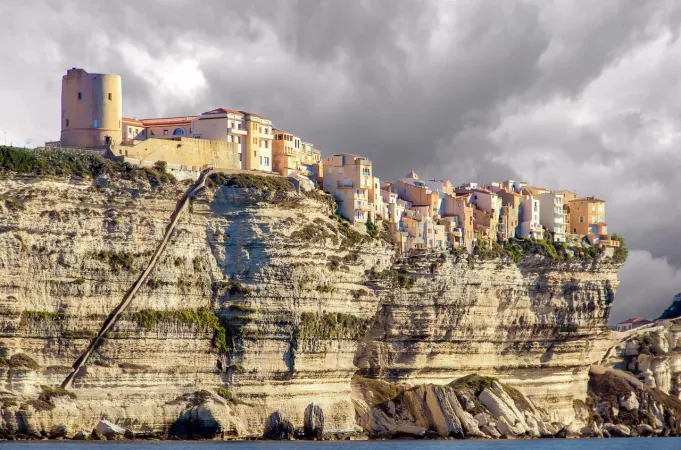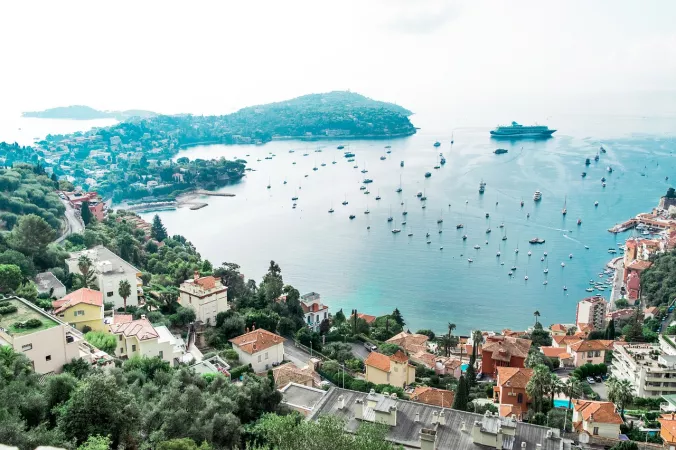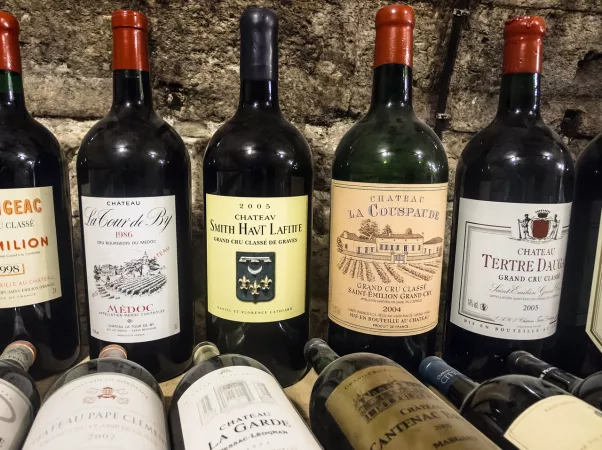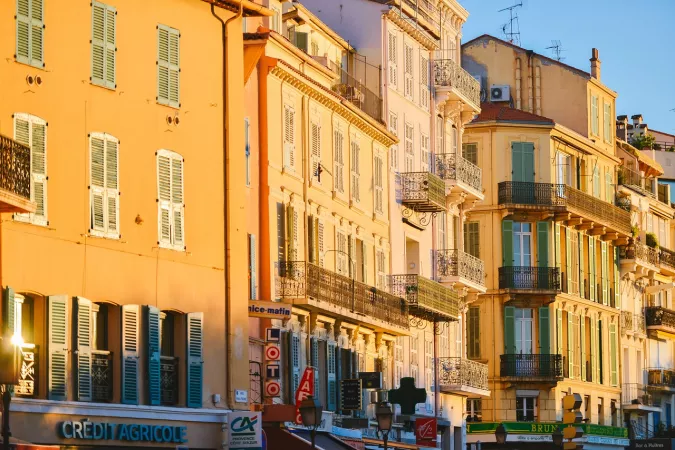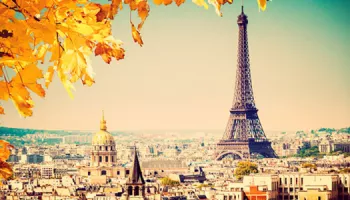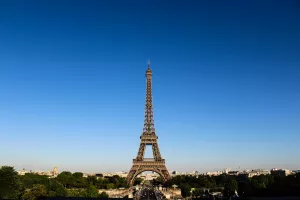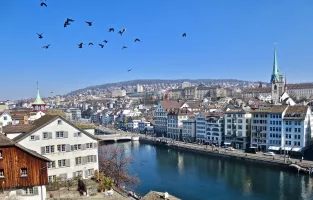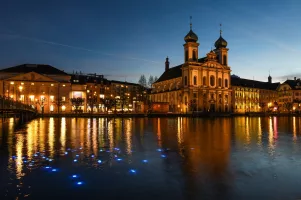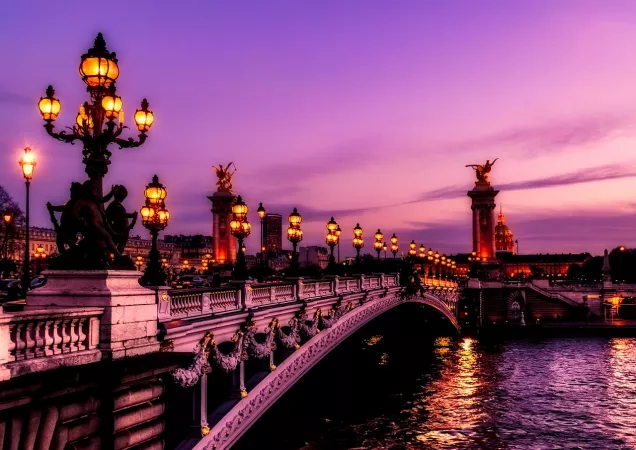
France
Duration
7 to 14 Days
7 to 14 Days
Best time to visit
May-Jun, Sep
May-Jun, Sep
Theme
Hill Station, Heritage
Hill Station, Heritage
France Travel Guide
France, located in Western Europe, is renowned for its rich history, diverse geography, and vibrant culture. It is famous for iconic landmarks like the Eiffel Tower, exquisite cuisine, fashion houses, and picturesque countryside. France has played a significant role in shaping art, literature, and politics worldwide.Top Attractions in France
- Eiffel Tower
- Louvre Museum
- Versailles Palace
- Mont Saint-Michel
- Provence
France is Famous for
France is most famous for its culinary delights, exquisite wines, and iconic landmarks like the Eiffel Tower.Top Attractions in France
- Eiffel Tower's panoramic views
- Louvre Museum's art treasures
- Versailles Palace's opulent history
- Mont Saint-Michel's medieval charm
- Provence's lavender fields
What's Great about Travelling to France?
- Rich cultural experiences
- Scenic landscapes
- World-class cuisine and wine
What's Not So Great about Travelling to France?
- High tourist crowds in popular areas
- Language barrier for non-French speakers
- Expensive dining and accommodation options
Travel Tips for France
- Check visa requirements before traveling
- Opt for public transportation within cities
- Stay cautious of pickpockets in crowded tourist areas
Important France trip information
- Ideal Duration: A minimum of 7-10 days to explore major cities and regions.
- Best Time to Visit: Spring (April to June) and Fall (September to November) for pleasant weather and fewer crowds.
- Nearby Airports and Railway Stations: Paris Charles de Gaulle Airport, Lyon-Saint Exupéry Airport, Gare du Nord in Paris.
Top 6 Places to visit in France
Total
3,03,000
*EXCLUDING APPLICABLE TAXES 5.0 Ratings
( 20 Reviews )
( 20 Reviews )
Per Person
2,24,990
*EXCLUDING APPLICABLE TAXES 4.8 Ratings
( 38 Reviews )
( 38 Reviews )
Total
4,24,000
*EXCLUDING APPLICABLE TAXES 5.0 Ratings
( 20 Reviews )
( 20 Reviews )
Total
3,77,000
*EXCLUDING APPLICABLE TAXES 5.0 Ratings
( 20 Reviews )
( 20 Reviews )
Total
3,79,500
*EXCLUDING APPLICABLE TAXES 5.0 Ratings
( 20 Reviews )
( 20 Reviews )
Total
3,98,000
*EXCLUDING APPLICABLE TAXES 5.0 Ratings
( 20 Reviews )
( 20 Reviews )
FAQ's on France
Q1: What is the best time to visit France?
The best time to visit France is during the spring (April to June) and fall (September to November) when the weather is mild, and the tourist crowds are smaller. Summer (June to August) is popular but can be crowded, especially in tourist hotspots. Winter (December to February) is ideal for skiing in the French Alps. Consider visiting during special events like the Cannes Film Festival in May or the Tour de France in July for a unique experience.
Q2: Do I need a visa to travel to France?
Most tourists from the US, Canada, Australia, and the EU do not need a visa for stays under 90 days. However, check the specific visa requirements based on your nationality. Make sure your passport is valid for at least six months beyond your planned stay in France.
Q3: What are the must-visit attractions in France?
France is known for iconic landmarks like the Eiffel Tower, Louvre Museum, Palace of Versailles, and Notre-Dame Cathedral. Explore the picturesque Provence region, visit the beautiful French Riviera, and indulge in the wine regions of Bordeaux and Champagne. Don't miss out on the charming villages of Alsace and the historic Mont Saint-Michel.
Q4: Is France a safe place to travel?
France is generally safe for tourists, but like any destination, it's essential to stay vigilant, especially in crowded tourist areas where pickpocketing can occur. Avoid poorly lit or deserted areas at night and be cautious of your surroundings. Keep an eye on travel advisories and follow local guidelines for a safe trip.
Q5: What is the local currency in France and can I use credit cards?
The local currency in France is the Euro (€). Credit cards are widely accepted in most establishments, but it's advisable to carry some cash for smaller purchases or in rural areas. ATMs are readily available in cities and towns for currency withdrawal.
Q6: What is the local cuisine like in France?
French cuisine is renowned worldwide for its delicious flavors and culinary traditions. Indulge in classics like croissants, baguettes, cheese, escargot, coq au vin, and ratatouille. Don't forget to try local wines, pastries like macarons, and the famous French desserts like crème brûlée and tarte Tatin.
Q7: What transportation options are available in France?
France has an extensive transportation network, including high-speed trains (TGV), regional trains, buses, and metros in major cities. Renting a car is a great way to explore the countryside. Taxis and ridesharing services are also available. Consider a river cruise along the Seine or Rhône for a unique travel experience.
Q8: Are there any cultural norms or etiquette I should be aware of when visiting France?
When visiting France, remember to greet with "Bonjour" (good day) and "Merci" (thank you). Dining etiquette is essential, such as keeping your hands on the table during meals and waiting for the host to start eating. Dress stylishly yet modestly, especially when visiting churches or upscale establishments. Respect local customs and traditions, such as observing quiet hours in residential areas and following museum rules. Enjoy the art, fashion, and gastronomy that France has to offer while respecting the local culture.
Q9: I am a travel agent. How can I buy travel leads of France?
Register yourself as a travel agent at agents.tripclap.com and then you can buy travel leads to France once your account is approved. For more details contact our support team at +91-8069186564 or support@tripclap.com
